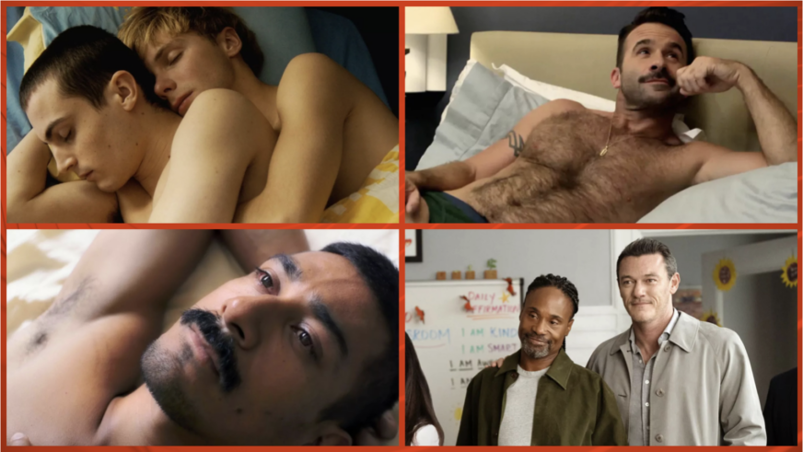
When a poll taken by USA Today/TenBest this year asked readers for the “Best Film Festival” in the country, you would be forgiven for assuming the winning event was in a fest-heavy state like New York or California.
Instead, the very queer festival Out On Film in Atlanta took the prize from voters, and it’s the latest example of Atlanta being underestimated and then defying those expectations.
“Was the poll scientific?” asked Jim Farmer, the Out On Film festival director. “Of course not. But it’s very important to us. Our festival was named in a national poll and won it.”
“Let’s be honest,” Farmer added, “the LGBTQ+ film festivals that get national attention are based in LA and New York City. And they’re wonderful festivals, but so are the rest of us. I think Out On Film’s programming is among the best in the country.”
From its opening yesterday, September 21, all the way through its closing night on October 1, Out On Film is set to host capacity crowds.. And don’t fret if you live nowhere near the steamy southern city. More than 75% of the film fest content is available through streaming ticket packages.
So what makes Out on Film such a hot ticket for queer audiences and our allies, and in the deep South of all places? In an exclusive interview with Queerty, Jim Farmer broke down four reasons for his festival’s success and gave us a sneak preview of the cinematic excitement unfolding this weekend and beyond.
1. Out On Film knows how to put on a festival, y’all.
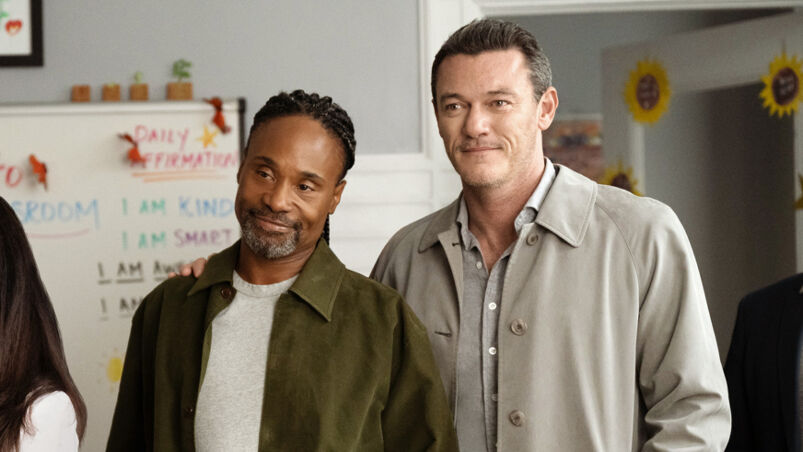
Out On Film’s lineup includes 44 features, two webseries, and 15 shorts programs, with 151 films representing 27 countries.
According to Farmer, it’s a banner year for LBTQIA work. “I am impressed and excited at the programming we have this year for our 36th anniversary,” he told Queerty. “We have a wonderful combination of films from around the world, as well as from our amazing city of Atlanta, including two blocks of Atlanta-centric short films.”
Among the entries are several world and national premieres from filmmakers around the globe.
Farmer has his personal favorites but tries not to influence his audiences. He did, however, suggest he has a soft spot for Our Son, the opening night feature with Billy Porter and Luke Evans caught in conflict over custody of their son.
Farmer is also looking forward to the world premiere of A Big Gay Hairy Hit! Where The Bears Are: The Documentary, about the unlikely success of a web series starring men of the bearish persuasion. For romance, Lie With Me promises all the golden-hued romance of young love.
2. Out On Film reflects the diversity that makes Atlanta so special.
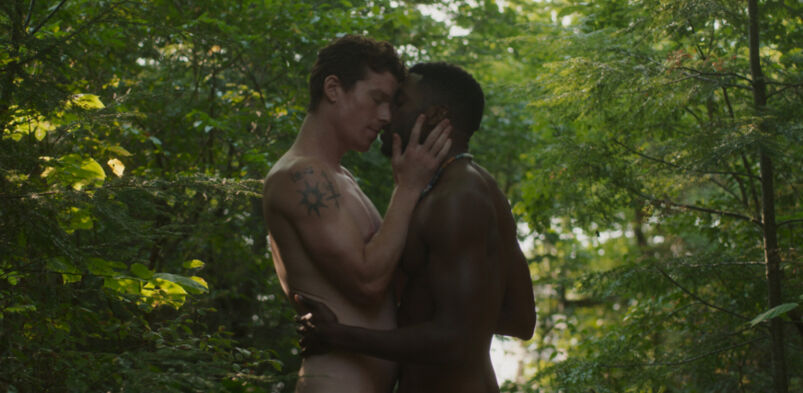
Atlanta isn’t simply the most bustling of all southern cities. It’s a beloved haven for LGBTQ+ people and a hotspot for Black LGBTQ+ community gatherings in particular, all of which influence the audiences and programming of Out On Film.
“Let’s face it,” says Farmer. “The film industry is dominated by white cis men, so it’s important for us to be as inclusive and diverse as possible.” Farmer points to festival entries such as the documentaries Kenyatta: Do Not Wait Your Turn and TRANSWorld Atlanta as two examples of a program stuffed with representation from every corner of the community.
“We have one of the biggest LGBTQ+ communities in the country,” Farmer adds. “We live in an area in the South that has all sorts of races and genders and ages. Everyone is celebrated at Out On Film.”
“I have viewed about 1,000 films to come up with the Out On Film program. We make it a point to program films from around the world and be sure the program is balanced. It’s also important to showcase Atlanta filmmakers. We have two specific programs of short films produced by Atlanta artists. We have various other films that are directed by Atlantans or Atlanta is featured in some way.
“So much is going on here, so many people have moved here. When I first started doing the festival in 2008, I could count the number of queer filmmakers on one hand. Today, there are literally dozens, and they work together and collaborate. It’s really a beautiful community of artists.”
3. The South is hungry for queer representation.
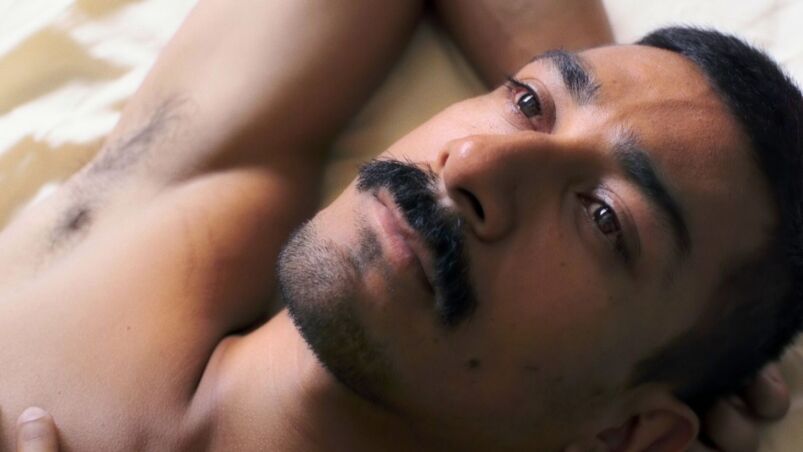
“When I grew up and was watching TV and movies, there was very little LGBTQ+ representation,” Farmer told us, “and when I did see somebody, it was always tragic. Somebody had to die. I think the first queer movie I saw was Cruising (the violent film with a gay serial killer). I mean, dear God. I wondered, ‘Is this what I have to look forward to?’ And then years later, the main character in gay films had to die of AIDS.”
Farmer is thrilled that contemporary stories feature more full-bodied narratives. “We’ve now evolved to an era where we can have comedy and happy endings,” he remarked. “Movies where someone has HIV, for instance, and they are living happily. It’s so refreshing to have that.”
And then there is the matter of the oppressive South. “I think when people hear the word Georgia, they hear the South,” Farmer told us, “and that can bring up negative connotations. But Atlanta is known for its enormous diversity. Our audiences need it and come here for it.”
“Georgia is teetering between being a red state and a blue state,” Farmer continued. “A lot of people who come to our festival come from outside the city or from the southeast in general. They see us as a safe haven. In their hometown they can’t be out at work, out with their families, or simply be themselves. It’s empowering to them to come here, see themselves on screen and feel like they are part of a community.”
“In the south with all the anti-LGBTQ+ legislation happening, it’s really important to have positive portrayals, and show we are around and we’re not going anywhere.”
4. A little southern hospitality goes a long way.
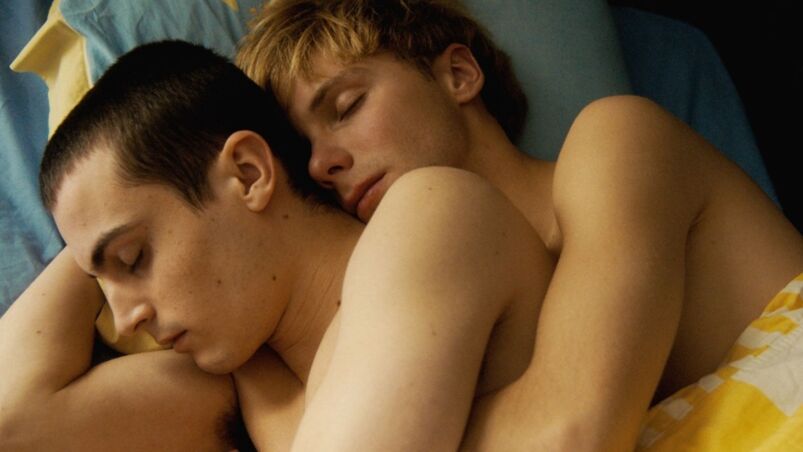
“We put on a rockin’ festival,” Farmer said, “with great filmmaker interviews, lots of visiting directors, and Q&A sessions. The primary focus is great films, but certainly people who come down here are going to have a good time. That means great hospitality.”
For attendees, that might mean venturing out for Atlanta’s famed nightlife to eat or dance or cruise. If you’re streaming the festival, it could be as simple as enjoying the Atlantan films with charming southern drawls that go down like a glass of sweet tea.
“We have such friendly southern crowds at our opening and closing night parties,” Farmer told us, “along with various gatherings in the Filmmaker Lounge, or just people hanging out at the festival venues between screenings.” Farmer reports that volunteers driving filmmakers from the airport are peppered with questions about Atlanta’s many famous eateries, as well as queries about everything from the leather bars to the city’s gorgeous parks.
There’s no doubt those questions are answered with helpful answers delivered with an adorable twang.
For more information about the Out On Film festival happening now through October 1, visit their website.



















